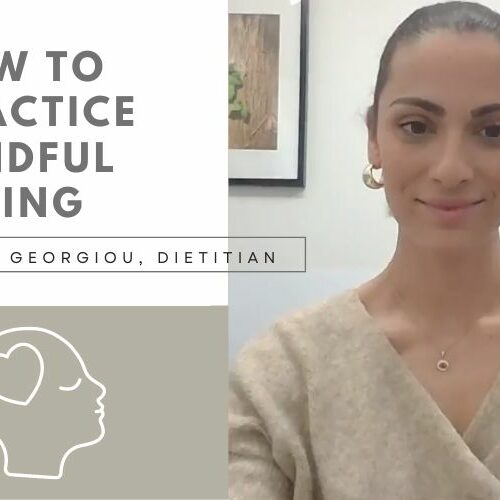
In the wintertime, it’s often the case that we reach for our comfort foods – which can be stodgy, and unhealthy. We can also tend to reduce our exercise. Both of which have us getting us off track with our goals! So how do we prevent unhealthy habits creeping in as the weather cools? I’ve compiled 5 tips for eating healthy in winter. You can practically apply these five crucial aspects of diet and lifestyle to your life today.
Watch my video, or keep reading below, to find out these tips, and what you can do to stay on track with your goals. That way, you can keep losing weight or maintain it, stay fit, and get the optimal nutrition that leads to a long and healthy life, whatever the weather!
1. Plan ahead
My first piece of advice would be to plan ahead. This is one of my favourite tips for eating healthy in winter, or anytime really. Our winter meals are often super easy to pre-prepare and reheat. We’ve got lots of beautiful casseroles that you can make ahead. Try lots of hearty soups using nutritious and fibre-rich legumes (either tinned or dried). You can also roast lots of different vegetables, preferably the non-starchy variety. So, opting for vegetables like eggplant, zucchini and pumpkin. Roasting these will be a fantastic way to add more vegetables to your meals during the week.
If you’re in Brisbane, you might also like to stock up on a few healthy ready-meals prepared by Tree of Life Nutrition! These are so delicious and are fantastic to pop in your freezer. A lifesaver in those super busy times when you might have otherwise reached for an unhealthy takeaway!
For something sweet, you could make some stewed apples. Perhaps stewing them with some cinnamon, and a little bit of honey ahead of time. Then you can store them prepared and ready to go in the fridge. When you’re ready to eat them, you can enjoy them with some beautiful Greek yoghurt as a delicious snack.
2. Consider carbs
The second of my top tips for eating healthy in winter, is to enjoy low GI carbohydrates. Pay attention to this both at your meals and with your snacks. Carbohydrates that are low in glycemic index will help you feel fuller for longer. Low GI carbs help prevent you from feeling hungry later on and over-eating down the track. They also help you feel more satisfied from your meal. It’s also generally a healthier way to eat to maintain for a balanced and nutritious diet. Here are some quick examples of how you can incorporate low GI carbs into your meals:
- Breakfast A great way to start your day, is with some grainy bread, or muesli with nuts and seeds.
- Snacks. When it comes to your snacks, be sure to include a grainy cracker or a piece of fruit, or something similar, to help get you through to the next meal.
- Lunch and dinner. Include plenty of ancient grains like quinoa, freekeh, couscous, bulgar, as well as opting for grainy bread over refined flours. Seeded sourdough is a fantastic bread to choose.
Including these foods at your meals will help you regulate your appetite levels throughout the day.
3. Eat mindfully
My third piece of advice for winter nutrition is to eat mindfully, particularly outside meal times. So think about checking in with yourself. Asking “do I physically feel hungry right now, or is it another emotion that I’m feeling?” If it is an emotion, make a note of what might that feeling be. Picking another activity as a default distraction instead of eating is a good approach to help break the cycle of emotional eating.
When you feel that you do have those hunger cues, that’s when you should go and have a nice balanced snack. Again, including a low GI component and a piece of protein. You might choose some yoghurt and muesli. Or cottage cheese with some grainy crackers. Importantly, taking your time and try to savour what you’re eating, with no distractions.
4. Stay hydrated
Now my fourth tip for healthy eating, is actually about staying hydrated. In the cooler months, hydration cues are not as prominent as they are in the summertime. We just don’t feel as thirsty. However, our body still needs just as much water. Sometimes when our body is thirsty, it gets confused with the hunger cues. This means you might feel hungry when you’re actually thirsty. So making sure that you’re having enough water is essential. How much? 1.8 for litres per day for women, and two litres per day for men. A super-important way to ensure your hunger levels are being regulated appropriately.

5. Keep moving
Now, my final tip is to keep moving. It’s very tempting to stay cuddled up in bed during wintertime, but it’s super important to get out there. Find an activity the you really enjoy doing and get moving. Maybe walking, or Pilates, whatever it is, just make it something that you really enjoy. Don’t give it up in the wintertime and make it a priority.
So those are my five tips for eating healthy in winter. I hope they motivate you to keep your nutrition top of mind even when the weather starts to cool. That way, not only can you stay healthy, but also stay on track with your goals.
Getting help to plan
Not sure where to start putting together a healthy winter week? It’s a great idea to allocate some time to planning meals that work for you at the beginning of the season. Considering, your lifestyle and any conditions or allergies you might have. If you’d like help to do this well, we offer an online meal planning service. This includes a consult, and an individualised plan to help you reach your health goals.
Another way you can get a dietitian-recommended weekly menu, is to purchase our cookbook, Mediterranean Eating. This includes a comprehensive guide to the Mediterranean diet, and a 1500 calorie weekly meal plan. There’s shopping tips, a bank of great recipes and lots of advice about how to implement this scientifically-proven diet into your life. Explore other calorie options, as well as our second book, The Mediterranean Diet, The Lifestyle of Eating, also packed with delicious recipes as well as advice from Australia’s prominent health experts. Find all your options on our Mediterranean cookbook page.
DISCLAIMER:
The content in this article is not intended as medical advice. It is also of a general nature and is not tailored to your individual circumstances. If you are experiencing significant digestive symptoms, a 1:1 consultation is always the best approach. Please contact our clinic to discuss your unique situation and our tailored and individualised IBS protocol.












